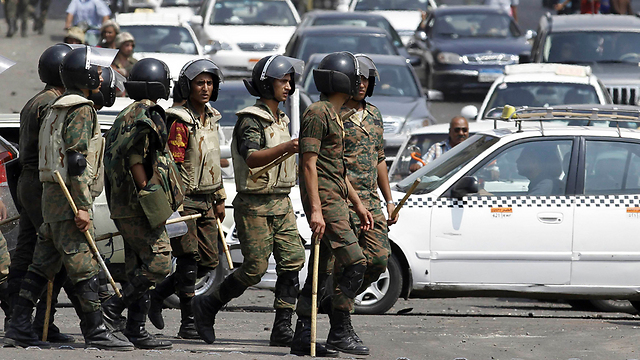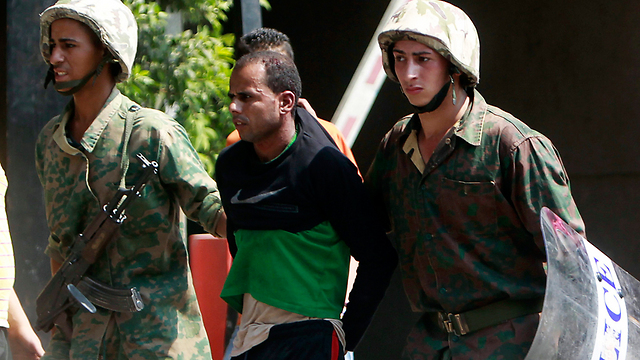After initially saying ‘threat of an Israeli military rescue operation’ was what brought Egyptian forces to Israeli embassy, where security staff were besieged by demonstrators, PMO releases clarification saying ‘intention was for a coordinated, not a one-sided, action’ with Egyptian troops.
Prime Minister Benjamin Netanyahu on Tuesday backtracked from remarks in which he said he had threatened to send commandos to Cairo in 2011 to rescue Israeli security staff besieged by demonstrators who had stormed Israel’s embassy.
Netanyahu clarified Israel had not intended to mount an operation on its own, but only in coordination with Egyptian authorities.
“The intention was for a coordinated, not a one-sided action. We are pleased that there was no need for this and thank the Egyptian army, which handled the crisis in a responsible manner and brought about a solution to the problem,” a statement from Netanyahu’s office said.

Demonstrators stormed the embassy, in the heart of Cairo, on September 9, 2011, in protest at the killing of five Egyptian security guards by IDF soldiers pursuing Islamist militants who had ambushed and killed eight Israelis along the border.
According to Netanyahu’s original account earlier on Tuesday at a ceremony in the Foreign Ministry marking Memorial Day, his threat galvanized the Egyptians to send in forces and rescue the six.

“A wild mob … came to slaughter our people, and that evening we used all the tools at our disposal, including a threat of an Israeli military rescue operation – something that ultimately was the deciding factor and brought the Egyptian forces (to the scene),” he said.
Egyptian Foreign Ministry spokesman Ahmed Abu Zeid said the ministry “had no knowledge of any internal Israeli discussion of such kind at the time.”
He added that Egypt’s government “bears the responsibility of providing protection to any foreign diplomatic mission on Egyptian soil according to its international obligations … and continues to do so.”

Netanyahu made no specific reference in his original comments about US intervention in helping resolve the crisis and his telephone call at the time with President Barack Obama, and the involvement of other top US officials.
In 1979, Egypt became the first Arab country to recognize Israel. Bilateral relations have endured political upheavals that saw the rise and fall of the Muslim Brotherhood, followed by the current pro-Western administration of President Abdel Fattah al-Sisi.
As reported by Ynetnews
